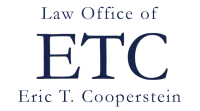 There is a good deal of postulating in the blogosphere about the types of ethical trouble a lawyer can get into by using social media. The nattering nabobs of negativism warn us to be careful when using social media like Facebook or Twitter, lest we unwittingly disclose client confidences, improperly solicit new clients, or misrepresent facts or law.
There is a good deal of postulating in the blogosphere about the types of ethical trouble a lawyer can get into by using social media. The nattering nabobs of negativism warn us to be careful when using social media like Facebook or Twitter, lest we unwittingly disclose client confidences, improperly solicit new clients, or misrepresent facts or law.
Although there is precious little evidence that any lawyers have gotten themselves in ethical hot water using social media, the Philadelphia Bar Association recently gave its own example of the potential dangers when its Professional Guidance Committee issued Opinion 2009-02 (March 2009).
The premise for the opinion is straightforward: a lawyer wanted to know if he could have a non-lawyer assistant send a Facebook “friendâ€� request to a witness for the opposing party in a piece of litigation. The lawyer apparently thought there were juicy tidbits to be found on the witness’s Facebook  page (or at least information with impeachment value) but did not think the witness would accept a friend request directly from the lawyer (no surprise there—he had just recently taken her deposition). But the lawyer thought a friend request from an otherwise unknown assistant stood a good chance of being accepted.
The Philly opinion frowned on the lawyer’s proposal. It called it a “highly material fact� that the witness would be making a friend request without disclosing the real reason for the request. Inducing the witness to respond favorably without that important fact would be a deception traceable to the lawyer, violating several ethics rules.
Whether one agrees with the opinion or not ( I did a double-take the first time I read it), the opinion is not really about Facebook. It actually tackles a difficult subject in legal ethics known as “dissembling� or “pretexting� (which has nothing to do with sending text messages). The terms refer to situations in which a person, particularly a lawyer or the lawyer’s subordinate, pretends to be someone he or she is not for the purpose of obtaining information.
As noted in the Philly opinion, such conduct is permitted in many jurisdictions for the limited purposes of civil rights investigations (think fair-housing testers) or for patent infringement cases. Some jurisdictions, in contrast, have tried to outlaw pretexting entirely (see the authorities cited in the Philly bar opinion).
When one takes a step back from the Philly opinion and looks at it in the context of the larger legal issue, it becomes clearer that while it is certainly possible for a lawyer to violate an ethics rule while using social media, it is the lawyer’s conduct, not the medium, that will likely be at the heart of the issue. An unthinking lawyer who posts too quickly on Facebook or Twitter is not that unlike a lawyer who speaks too loudly about a client matter in a crowded elevator or puts an ad in the yellow pages that inflates the lawyer’s credentials.
The old maxim that one should think before he or she speaks (or tweets) applies no less to the internet than it applies to other forms of communication.
If you are new to social networking, check out our Facebook 101 post.
Facebook ethics: it’s not about Facebook is a post from the law firm marketing blog, Lawyerist.com
Related posts:

